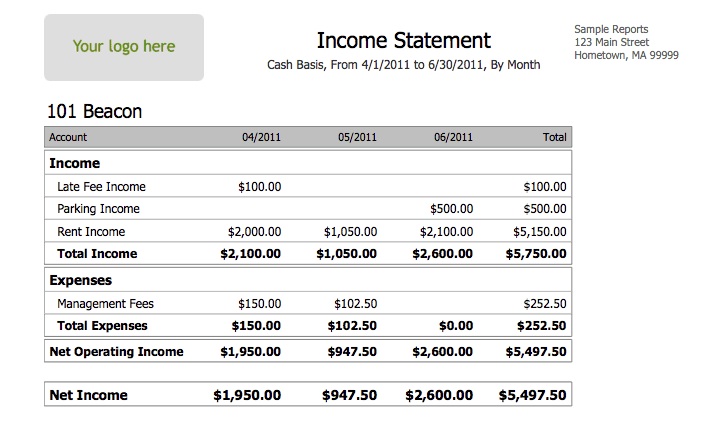Rental Property Income Statement: A Guide for Landlords
Rental Property Income Statement: A Guide for Landlords
Blog Article
Understanding the financial wellness of a rental property is needed for any landlord seeking to maximise returns. Among the very best resources for tracking that is an money statement. Also called a profit and loss record, this rental property income statement photo of a property's money, expenses, and over all profitability.
An money statement isn't just for big corporations—it's equally valuable for landlords handling one or multiple hire properties. Here is how it works and why it's vital for checking profitability.

Breaking Down the Money Statement
An income record consists of three primary ingredients:
1.Revenue (Income)
This section contains all sourced elements of revenue produced from the property. For a landlord, that usually indicates hire money paid by tenants. Nevertheless, additionally it may catch extra revenue revenues such as for example parking fees, pet charges, or laundry facilities.
2.Expenses
Costs in property administration may range between fixed prices like house fees and insurance to variable costs like preservation, fixes, and utilities. That part also reports for mortgage obligations (if the property is financed), HOA charges, and even advertising fees for getting tenants.
3.Net Income
After overall costs are taken from overall revenue, landlords may determine whether their home is profitable. An optimistic result shows profitability, while an adverse figure items to a possible reduction that requires immediate attention.
Why Revenue Statements Are Critical for Landlords
Using an income record offers several important benefits for landlords.
•Assessing Profitability
The revenue statement provides a simple method to see whether your house is generating a profit or costing you money. This understanding is critical to make data-driven decisions.
•Determining Cost-Saving Possibilities
By itemizing expenses, landlords may determine parts where expenses can be reduced. For example, if utility costs are extraordinarily large, it might be worth investigating energy-efficient upgrades.

•Checking Economic Developments
Revenue statements as time passes disclose performance trends. Landlords may monitor how profitability varies with seasonality, market conditions, or unforeseen improvements like tenant turnover.
•Encouraging Financial Objectives
Whether planning to reinvest in the home or save your self for future development, revenue statements help outline economic strategies. In addition they ensure it is easier to secure financing if needed, as lenders frequently involve proof of profitability.
Ultimate Thoughts
For landlords, an money record is more than just an sales tool—it's a gateway to raised economic management. By often compiling and researching money claims, landlords may gain a further comprehension of their hire property's cash movement and profitability, ensuring long-term accomplishment in the aggressive real-estate market. Report this page